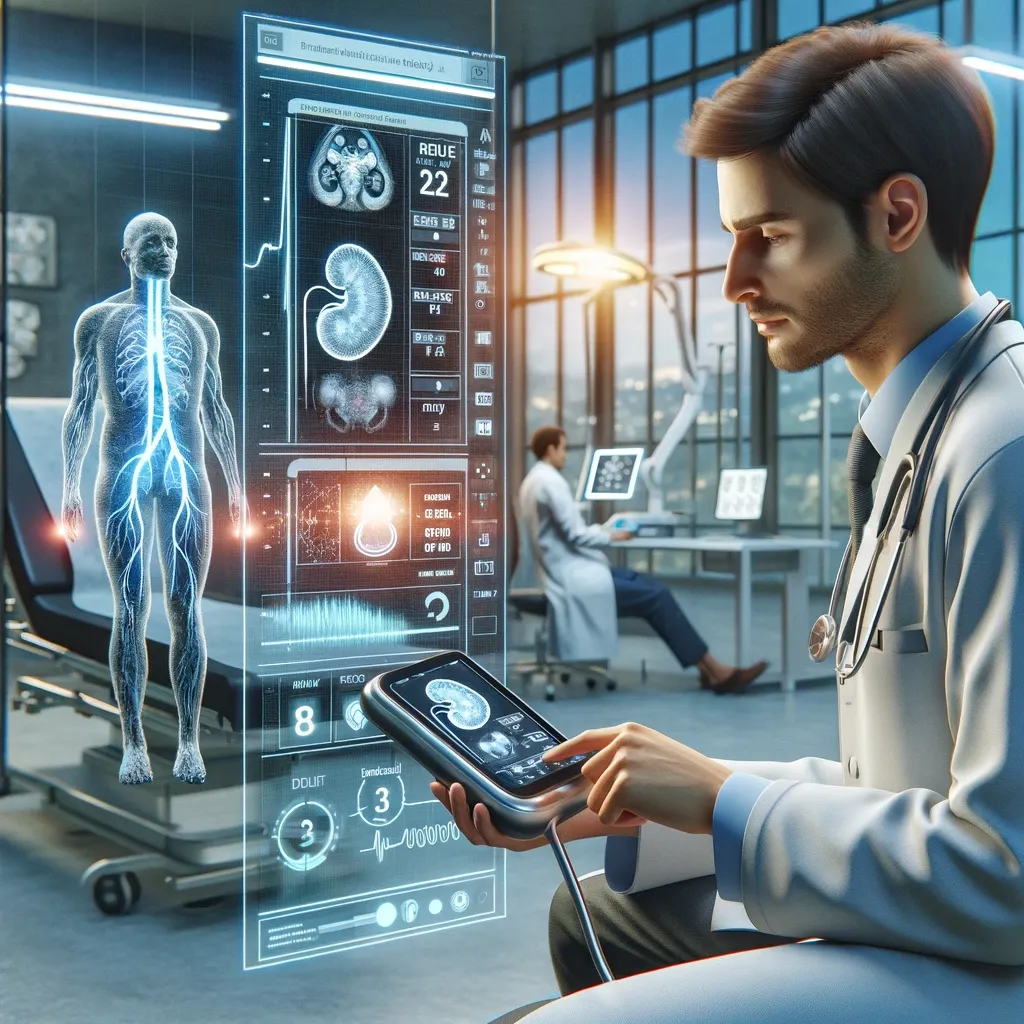Introduction
Artificial Intelligence (AI) is increasingly shaping various industries, and healthcare is no exception. The future of AI in healthcare promises to bring about groundbreaking changes in medical practices, from early diagnosis to personalized treatments. As AI continues to evolve, it offers the potential to improve patient care while reducing costs and enhancing overall healthcare efficiency. By incorporating AI technologies, healthcare systems can deliver faster, more accurate, and more effective treatments, leading to a healthier future for all.
1. Enhancing Diagnosis with AI
AI has already shown great potential in improving diagnostic accuracy. AI-powered tools can analyze medical data, such as X-rays, MRIs, and CT scans, faster and more precisely than human doctors. By leveraging deep learning algorithms, AI systems can detect diseases at their early stages, even before symptoms appear. According to Harvard Health, AI applications in radiology are already showing great promise in identifying conditions like cancer, heart disease, and neurological disorders.
Furthermore, AI-based tools can assist doctors in interpreting lab results and electronic health records (EHR), ensuring that patients receive timely and accurate diagnoses. With AI support, healthcare professionals can make better-informed decisions, leading to more effective treatments and improved patient outcomes.
2. AI-Powered Personalized Medicine
One of the most exciting applications of AI in healthcare is personalized medicine. AI can analyze a patient’s genetic makeup, medical history, and lifestyle factors to tailor treatments specifically for them. This approach moves away from the traditional “one-size-fits-all” model, ensuring that treatments are more effective and have fewer side effects.
For example, IBM Watson Health uses AI to analyze vast amounts of healthcare data to recommend personalized treatment plans for cancer patients. AI algorithms can suggest the best course of action based on an individual’s unique genetic and medical profile, improving the chances of successful treatment and recovery.
3. Improving Treatment Efficiency and Workflow
AI is also transforming healthcare by optimizing hospital workflows and treatment processes. Machine learning algorithms can predict patient needs, helping hospitals better allocate resources and manage staff. For instance, AI can predict when certain medical staff will be needed for specific procedures or when a patient is likely to require urgent care.
Additionally, AI can assist in automating administrative tasks such as scheduling, billing, and patient data entry. By automating these routine tasks, healthcare professionals can focus more on direct patient care, improving efficiency and reducing burnout. This will not only save time but also reduce healthcare costs, making treatment more affordable and accessible for patients.
4. AI in Drug Discovery and Development
AI is also playing a critical role in revolutionizing the drug discovery process. Traditionally, developing a new drug can take years and cost billions of dollars, but AI is significantly speeding up this process. By analyzing existing drug data and predicting how different compounds interact with biological systems, AI can identify promising drug candidates much faster.
For example, Atomwise uses AI to predict how molecules will behave in the body, helping to identify potential drugs for diseases like Alzheimer’s and cancer. AI-driven drug discovery not only shortens development timelines but also increases the chances of finding effective treatments for previously difficult-to-treat conditions.
5. AI-Powered Virtual Health Assistants
Another significant advancement in AI healthcare applications is the use of virtual assistants to improve patient engagement and healthcare access. AI-powered chatbots and virtual assistants can provide patients with immediate responses to common health inquiries, schedule appointments, and even track medications.
For example, healthcare apps like Babylon Health (https://www.babylonhealth.com) use AI-powered virtual assistants to provide real-time consultations based on patient symptoms. These virtual assistants can triage symptoms, recommend next steps, and even direct patients to appropriate healthcare professionals. This reduces the strain on medical staff and gives patients quicker access to care.
6. Ethical Considerations and Challenges
While the potential of AI in healthcare is vast, there are also ethical concerns that need to be addressed. Ensuring data privacy and preventing biases in AI algorithms are critical to ensure that AI is used fairly and responsibly. Transparent regulations and ethical guidelines will be essential for ensuring that AI technologies are deployed in ways that benefit all patients.
Moreover, AI should be seen as a complement to human healthcare providers rather than a replacement. Human oversight is necessary to ensure that AI decisions align with patient needs, emotions, and complex medical contexts that AI might not fully grasp.
Conclusion
The future of AI in healthcare is incredibly promising, with the potential to improve diagnostic accuracy, personalize treatment, streamline workflows, and revolutionize drug discovery. By integrating AI technologies into healthcare systems, we can expect faster, more efficient, and more effective care that is accessible to everyone. However, it is essential that AI applications are ethically deployed and used to complement the expertise of healthcare professionals.
As AI continues to evolve, the healthcare industry will undergo a transformation that leads to better health outcomes, lower costs, and improved quality of life for patients worldwide.
Call to Action
Are you excited about the future of AI in healthcare? Share your thoughts on how AI can improve medical practices and contribute to a healthier world in the comments below. Stay informed and embrace the possibilities that AI holds for the future of healthcare.
External Links for Reference:

